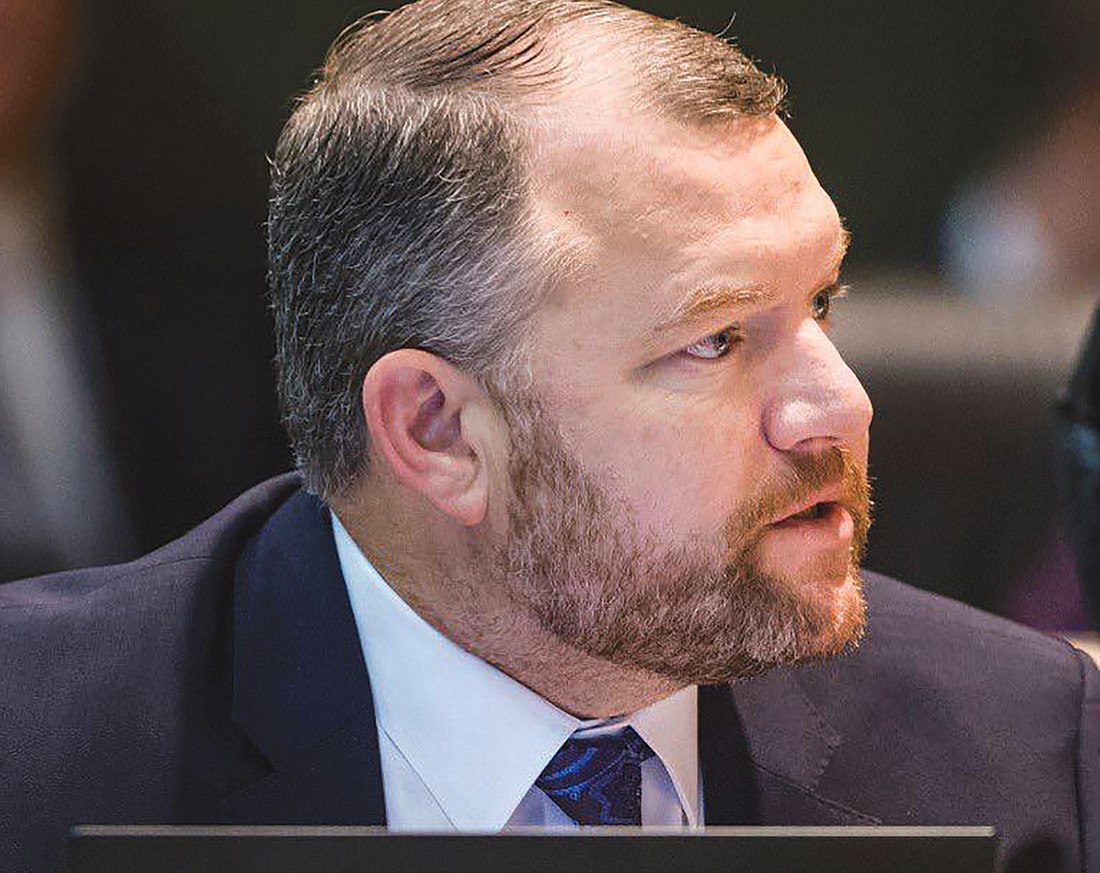
Florida Senate President Bill Galvano released his 2018-20 committee assignments this week.
State Sen. Rob Bradley, whose district includes Clay and Baker counties, will chair the Senate Appropriations Committee for the next two years.
Bradley is a Republican who represents Baker, Bradford, Clay, Columbia, Dixie, Gilchrist, Lafayette, Levy, Suwannee and Union counties and part of Marion County.
In his role, Bradley will lead budget discussions along with other members of committees and subcommittees.
He will serve on other committees including Innovation, Industry and Technology; Finance and Tax; Rules; and the Joint Legislative Budget Commission.
State Sen. Audrey Gibson, a Democrat, will serve as senate minority leader and has seats on the Judiciary Committee, the Innovation, Industry and Technology Committee and Appropriations.
Along with Republican Aaron Bean, Gibson represents part of Duval County.
Bean, whose Senate district also includes part of Nassau County, will sit on the Governmental Oversight and Accountability Committee, Infrastructure and Security, the Appropriations Subcommittee on Agriculture, Environment and General Government, and on the general Appropriations Committee.
Bean will chair the Appropriations Subcommittee on Health and Human Services.
State Sen. Travis Hudson has assignments on the Commerce and Tourism committee, the Judiciary Committee, the Innovation, Industry and Technology Committee, Infrastructure and Security Committee and Appropriations.
He also will chair the Appropriations Subcommittee on Transportation, Tourism and Economic Development.
Hudson represents Senate District 7 comprising Flagler and St. Johns counties and part of Volusia County.
The Mayor’s Budget Review Committee gave the city’s Office of Economic Development permission to submit legislation approving an economic development agreement with a company using the code name Project Turtle.
Described in public documents as an existing manufacturing company in Jacksonville, Project Turtle seeks $1.64 million in city-backed financial incentives to expand in North Jacksonville.
It plans to hire 108 employees at an average annual wage of $53,298 plus benefits and to invest $21.8 million into leasing a new industrial building and buying equipment.
The company is using a code name as it negotiates with the city, which is allowed by state law.
According to Kirk Wendland, OED executive director, Jacksonville is competing with at least two other Southeast areas where the company has facilities.
“Those places would all like to get this expansion,” Wendland said Monday. “That’s why we’re offering incentives.”
The incentives package comprises a Qualified Target Industry Tax Refund of up to $5,000 for each employee hired, for a total of $540,000. The city is responsible for 20 percent of the refund, or $108,000, while the state pays the balance.
No incentives are paid unless Project Turtle hits benchmarks outlined in the economic development agreement, which calls for the employees to be hired by year-end 2020.
The company seeks a refund on ad valorem taxes equal to 50 percent over the next 10 years through a Recaptured Enhanced Value grant, capped at $1.1 million.
Based on an internal formula, the city estimates the return on investment is 1.87 to 1.
Legislation is expected to be introduced Dec. 11 to City Council , which could approve the deal by the end of the year.
At-Large City Council member Anna Lopez Brosche’s attempt to strengthen transparency rules for city officials failed to gain traction Tuesday night with her peers.
Her legislation, 2018-570, earned just three votes from the 19 council members.
The bill would have required text messages and emails between council members and lobbyists to be available online.
Emails to and from Mayor Lenny Curry, Chief of Staff Brian Hughes, Chief Administrative Officer Sam Mousa and emails to all council members already are available through a public website although those accounts generally are updated infrequently.
Text messages are made available only through public records requests. The same can be said for any emails to or from individual council members.
Brosche’s legislation also would have required anyone who enters into a contract with the city worth more than $1 million to disclose political donations to local officials over the past five years.
Brosche and council members Garrett Dennis and Joyce Morgan voted for the measure.
The bill is a result of recommendations made by a task force on government accountability that Brosche formed last year as council president.
City Council approved legislation Tuesday allowing voters to have a say if the city considers selling JEA to a private operator.
The legislation follows a nonbinding straw ballot, which 73.4 percent of Duval County voters supported in the Nov. 6 midterm election.
Previously, council members had to approve a sale of more than 10 percent of JEA’s assets. Now voters must approve as well.
JEA privatization was a recurring theme the past two years, although there is no public effort to sell the utility.
While most of JEA’s customers live in Duval County, the authority also provides electricity to Orange Park, Baldwin, Atlantic Beach and parts of St. Johns County, and water and wastewater services to parts of Nassau and St. Johns counties. Those counties have the first right of refusal, according to interlocal agreements.
A financial audit of the city’s largest independent authority in February valued the entire operation between $2.9 billion and $6.4 billion.